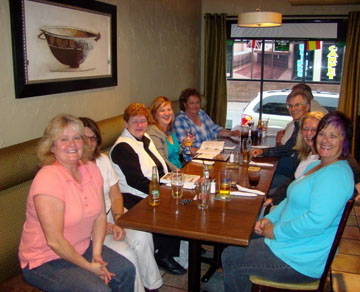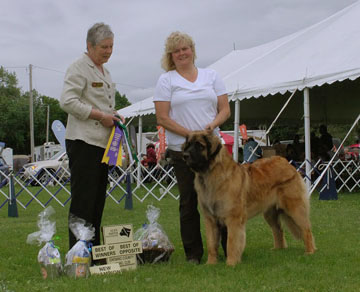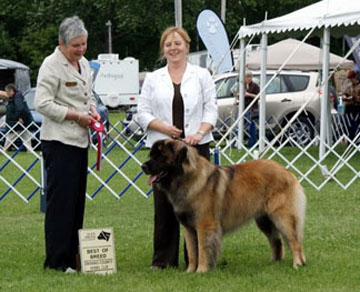June 13th | Leonberger Club of Canada Booster – 2010
Sunday June 13th The Leonberger Club of Canada held a booster At the Ontario Kennel Club Dog show held in Orono, Ontario. Everyone had a fantastic time.
There were 12 Leos entered in the show and everyone had a fantastic time. The dogs were all well behaved and everyone did a great job in the ring.
Congratulations to the winners!
Winners Dog: Accolade of Sterlingden (Laddie) , owners Beverly Waites and David Ludwick
Best of Winners and Winners Bitch: Heronview’s Exotic Dancer (Emma), owner Lori Dzingala
Best Puppy: Ludwick’s Belle Von Drea (Belle), owners Beverly Waites and David Ludwick
Best of Opposite (below): Heronview’s Exotic Dancer (Emma), owner Lori Dzingala
Best of Breed (below): CH GoldnPheonix Hit the Road CGN (Darcy), owners Janet Hanson and Alex Klebnikoff
A prize and ribbon was offered for Best of Breed, Best of Opposite, Best Puppy in Breed, Best of Winners, Winners Dog and Winners Bitch.



